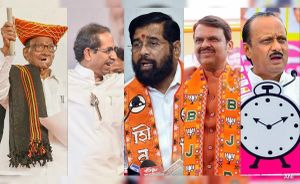On November 21, 2024, the situation between Russia and Ukraine escalated dramatically following the launch of an experimental hypersonic missile, signaling new tensions within the nearly three-year-long conflict. Ukrainian military officials reported the missile hit the city of Dnipro, raising fears about its catastrophic capabilities and marking what many believe to be a pivotal moment for both military strategies and international relations.
Russian President Vladimir Putin, addressing the nation shortly after the attack, claimed the missile—codenamed "Oreshnik"—was advanced enough to penetrate existing air defense systems, effectively marking it as the new cornerstone of Russia's military arsenal. He elaborated on its speed, reportedly traveling at Mach 11, and its advanced multibody warhead system, which could potentially allow for multiple impacts on various targets simultaneously.
Following this alarming development, NATO responded swiftly. Diplomats from the NATO-Ukraine Council announced plans for emergency talks, set to convene on November 26. Ambassadors from member countries will meet to discuss matters concerning the missile strike, the subsequent threat it poses to European security, and whether additional support for Ukraine is necessary. A NATO spokesperson indicated, "Deploying this capability will neither change the course of the conflict nor deter NATO allies from supporting Ukraine," reinforcing the alliance's commitment to Ukraine's sovereignty.
This missile assault by Russia is perceived as retaliation for Ukraine's increasing use of US and UK-supplied long-range missiles capable of delivering strikes deep within Russian territory. The Kremlin warned of potential consequences should Western nations continue to assist Ukraine militarily. ``The Russian side has clearly demonstrated its capabilities, and the contours of future retaliatory actions have also been quite clearly outlined,'' Kremlin spokesman Dmitry Peskov remarked. This rhetoric has intensified the already high stakes within NATO-Russia dynamics.
According to Ukrainian officials, the missile attack on Dnipro could have devastating repercussions, with estimates indicating it carried multiple warheads—six warheads, each releasing six submunitions—demonstratively pushing military thresholds. While Putin described the attack as successful and necessary, military analysts raised concerns about the weapon's design and potential nuclear capacity.
Reacting to these developments, Poland's Prime Minister Donald Tusk emphasized the conflict's shifting nature, noting it is entering what he described as "a decisive phase" with serious ramifications not only for the immediate region but for Europe. The Polish government, along with its NATO allies, is closely monitoring the situation, preparing for possible escalations.
A significant aspect of the discussions among NATO representatives will be the observed effectiveness of Western air defense systems against the new Russian missile technology. For Ukraine, intercepting the missile types currently being deployed remains imperative. Currently, prior reports indicated Ukraine's defenses had successfully intercepted about 80% of incoming missile strikes, but with Russia's introduction of faster and more advanced systems, this rate of success may be under threat. Ukrainian military intelligence has voiced concerns over the rapid evolution of Russia's armament strategies.
While assertions about the missile's capabilities abound, Russian experts speculate on the system’s underlying technology. Ilya Kramnik, a military expert, suggests the Oreshnik may represent a new category of intermediate-range missiles, emphasizing its production quality and adaptability. The potential of the system as hypothesized by analysts would put nearly the entirety of Europe within range but stops short of having any meaningful threat to the United States.
Experts are concerned about the broader aspects of this development, particularly how Russia’s new missile could undermine previous arms control treaties, amplifying existing fears of nuclear risks across Europe. General Sergei Karakayev remarked on its potential impact, citing, "Even with conventional warheads, the massive use of the weapon could be comparable to the effect of using nuclear weapons." This statement has drawn significant attention, raising the alarm over the balance of power and strategic stability in Europe.
Domestically, the Ukrainian parliament has ramped up security measures following the missile strike, consciously aware of the raised stakes as military facilities and civilian populations face these increasingly aggressive tactics from Russia. Ukrainian President Volodymyr Zelenskyy has vowed to take preventative measures and solidify air defenses to safeguard against potential future threats. The recent missile engagement has fortified resolve among Ukrainian officials, as international allies continue to rally support.
NATO’s forthcoming discussions will also include strategies to mitigate any potential humanitarian crises resulting from this conflict escalation. The use of hypersonic missiles by Russia introduces troubling dimensions not only to military strategy but to international law and civilian safety. Diplomatic efforts proven necessary for advancing any progressive talks have commenced, yet the urgency remains unprecedented.
European leaders reiterate commitments to keeping the diplomatic channels open, warning against descending fully back to conflict dynamics reminiscent of prior Cold War eras. Czech Foreign Minister Jan Lipavský spoke to the pressing need for additional air defenses for Ukraine and condemned Russia's actions as"escalatory steps and attempts to scare populations both within Ukraine and throughout Europe".
The urgency of NATO discussions at this juncture speaks to broader geopolitical coordination as members anticipate various scenarios following this incident. It invites consideration of power dynamics amid heightened military posturing and the rising stakes of military engagements. Contributions from multinational coalitions and strategic military enhancements will be constructive toward addressing these rising threats, as logistics and countermeasures actively evolve within all impacted territories.
Despite this rapidly changing military environment, calls for restraint emerge alongside ambitious appeals for military support. There remains, too, the hope among leaders from both NATO and Ukraine for organized responses which prioritize civilians’ safety and stability across affected borders.
Looking at the international chessboard, analysts assert the need for unity among allied nations against Russian military advancements must remain steadfast as NATO and Ukraine prepare for discussions aimed at reinforcing their collective efforts against this bold and alarming act of aggression. How participants define their approach will effectively determine the collective strength of their response within the broader scope of international security.
The outcome of these emergency talks is expected to set the tone for how NATO intends to address not only immediate threats but the long-term security architecture of Europe as the war continues to evolve, highlighting both the resiliency and fragility of alliances amid conflicts.



